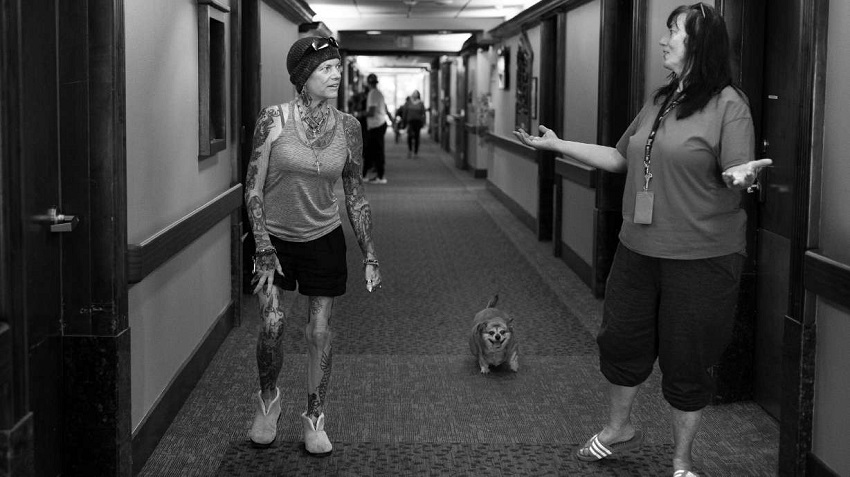Ogden, UT – A recent study from Utah Valley University highlights the effectiveness of medical respite care for individuals experiencing homelessness, specifically through the INN Between facility in Salt Lake City. The research reveals that providing medical respite not only reduces hospital utilization but also offers significant cost savings and improves health outcomes for this vulnerable population.
Conducted by Amanda Weller, a social worker, and Angelea Panos, an assistant professor of social work, the study compared outcomes for patients referred to the INN Between by the University of Utah Hospital and Huntsman Care Institute. The research focused on patients who either were able to access medical respite care or were unable to due to lack of available beds. Though the individuals had similar health needs, the critical factor was whether they could receive the necessary care at the INN Between.
The results of the study were striking. It found that medical respite at the INN Between reduced hospital utilization by a remarkable 91%. Since the facility opened in 2015, the program has saved local hospitals an estimated $30.5 million, with $6.4 million of that savings occurring in just the last fiscal year. On average, the program saves $47,110 in medical costs per patient each year.
Research has consistently shown that individuals experiencing homelessness use emergency services far more frequently than those with stable housing—up to 19 times more, in fact. These individuals are also more likely to face repeated hospital readmissions within a month or even a year. Many of them seek care for chronic conditions such as chronic obstructive pulmonary disease (COPD), high blood pressure, depression, and psychotic disorders, which could be effectively managed at lower-acuity levels with reliable access to housing, medications, proper nutrition, and rest.
The findings are particularly timely, as the Utah Legislature is set to meet soon. The INN Between is hoping for a one-time funding allocation of $500,000 to help expand its capacity from 63 beds to 80, as well as $100,000 in ongoing funding. The expansion would help address the current waiting list for patients needing medical respite care. However, the facility cannot achieve this expansion unless it can update some critical infrastructure, such as its HVAC system. Each room at the INN Between requires individual heating and cooling units, similar to those found in hotels, but not all rooms are equipped with this necessary infrastructure.
In 2021, the Utah Legislature passed a Medicaid medical respite waiver, but it is still awaiting approval at the federal level. The INN Between hopes that this waiver will soon be granted, which would further enhance the facility’s ability to serve those in need.
The study’s findings underscore the importance of investing in medical respite care for people experiencing homelessness. By reducing emergency department visits and readmissions, these programs help ease the burden on over-stressed healthcare systems while improving the overall health and well-being of individuals who have been marginalized. With additional funding and support, the INN Between’s medical respite program can continue to make a meaningful difference in the lives of those who need it most.

